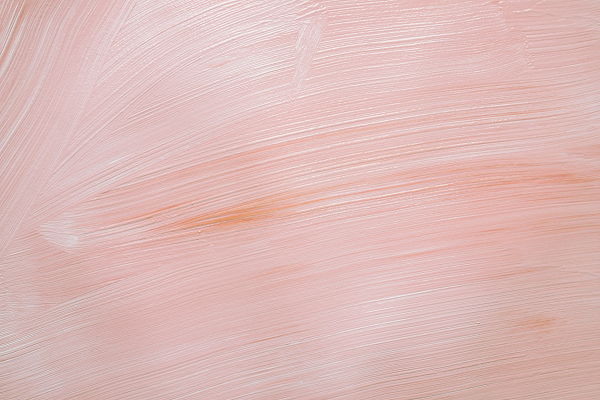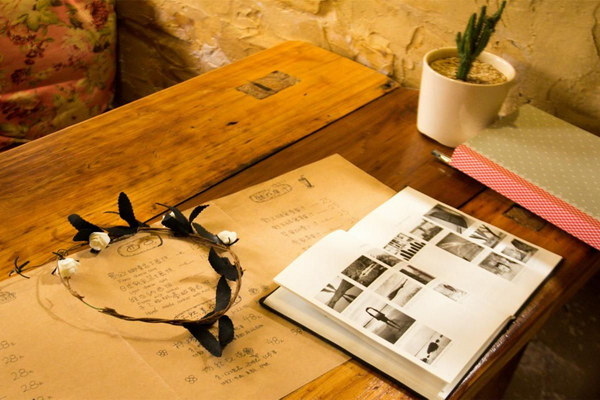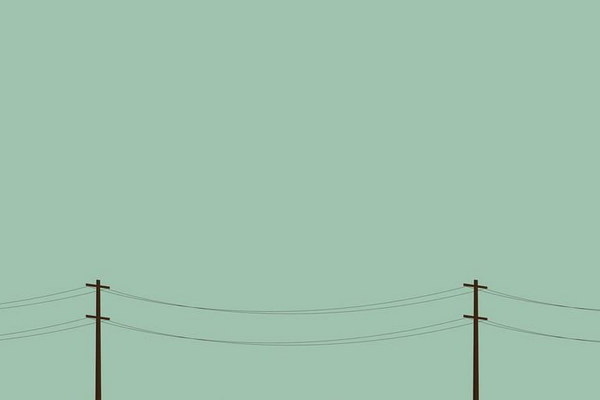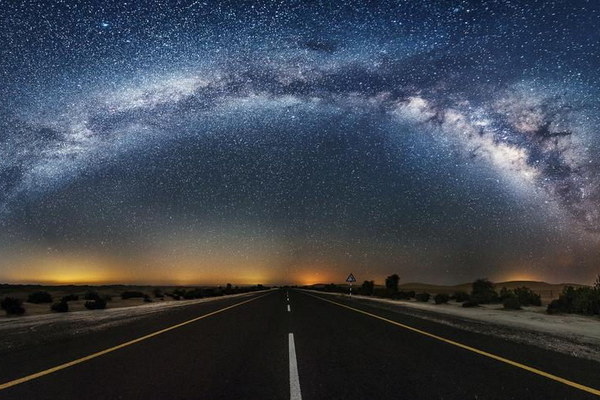Rudyard Kipling The Explorer Первопроходец
Редьярд Киплинг
Первопроходец
"Дальше двигаться не стоит – там земля совсем бесплодна" -
Говорили, - я поверил и обосновался тут,
Сколотил амбар, участок застолбил в подножье склона,
Где пути все обрывались, - здесь нашел себе приют
До тех пор, пока я Голос - странный Шепот не услышал,
Без умолку повторял он днем и ночью: ?Впереди
Ты отыщешь то, что скрыто? - говорил мне Голос свыше,
?Ждет оно тебя, - иди же, следуй дальше и найди!?
Нетерпением сгорая, собирался в путь-дорогу,
Скрытно лошадей и пони по долам и по горам
С превеликими трудами вел, - молился, но, ей-богу,
Вера, что горами движет, мало помогала там.
Наугад я продвигался по холмам да меж каменьев,
До воды спеша добраться и найти для пони корм;
Так в горах я очутился, там, где нет уже деревьев;
Лагерь мой - на Перевале, в царстве ветра, снега, гор.
Если б не погибли пони, замороженные Нордом,
То свое, наверно, имя я бы перевалу дал.
Мне опять явился Голос: ?Следуй дальше, - за Кордоном
То, что ищешь?. Ну, а лагерь я ?Отчаяньем? назвал.
Вот тогда в Его Защиту я поверил, все ж сомненья
Грызли: Более достойных часто выбирает смерть…
Повернуть еще не поздно… Видит Он мои мученья…
Поворачивать? - не стану!… Поворачивать – не сметь!
Но сменился снег на травы, шел столетник за лугами,
За столетником – дубравы, и бурлящие ключи;
Но опять мне испытание – только камни под ногами,
Лишь песок вздымался в небо, истощились все ручьи.
Стали чудиться мне люди, разговоры их я слушал,
Для проверки камень бросил, сидя ночью у костра;
Звуки мне воображались, голоса звенели в уши:
?Все за Прерией найдешь ты, отправляйся в путь с утра?.
Я с ума почти свихнулся, показалось – духов встретил,
Разговариваю с ними, - с приведеньями, - порой!
Плелся так, смотря под ноги, но и ноги, я заметил,
Не моими как бы стали; шел вперед едва живой.
Наконец-то миновал я страшную страну видений:
Предо мною расстилалась благодатная страна
Зеленых и сочных пастбищ, изобилия растений:
Вот он - отдых! Вот находка! Вот – удача, - вот она!
Изыскания я начал только кончились мытарства,
Шаг за шагом опыт новый постигал я что есть сил.
Вот Саул, ослов искавший, получил от Бога царство, -
Я, услышав Голос Божий, вдвое больше получил!
На опасных горных склонах собирал куски породы,
В топях девственных нашел я образцы ценнейших руд,
Водопадов слушал рокот, пенье птиц, как звук природы,
И бескрайние долины – как награда за мой труд!
Города и поселенья представлял и думал: скоро
Здесь появятся дороги, судоходство, капитал;
Сколько лье созреет леса, окружавшего озера,
Сколько надо урожая, чтобы каждый сытым стал!
Знал, - другие снимут сливки, – умники пойдут по следу,
Всей гурьбой повалят дружно Пионеры – храбрецы.
Все используют, однако, что открылось мне; победу,
Возвратившись, растрезвонят - ах, какие молодцы!
Вновь пооткрывают реки, - да не так, как я дивился,
И не те места для жизни снова станут выявлять;
Мне мои покажут знаки, - чтобы я не заблудился!
По моим же ориентирам точно будут направлять.
Не назвал реки, землицы не разжился я ни акром,
Ни единым самородком и ни слитком – но смотри:
Одарил меня Создатель в десять раз ценней подарком,
Многим не понятным; ладно: приходи, брат, - и бери.
Вы в краю найдете этом, вам пожалует природа,
Лес, руду, железо, реки – рядом с домом, нефть и газ, -
Бог хранил богатства эти до готовности народа:
Выбрал Он меня для Вести, и нашел я их для вас!
Где ж ?никчемная пустыня!?? как же - ?там земля - бесплодна??
?Дальше двигаться не стоит!? - счастлив я теперь вполне.
Ты прости мне, Святый Боже, – Твой подарок - для народа.
Мог другой услышать Голос, - только Он явился мне!
Rudyard Kipling (1865-1936)
The Explorer
There's no sense in going further--it's the edge of cultivation,"
So they said, and I believed it--broke my land and sowed my crop--
Built my barns and strung my fences in the little border station
Tucked away below the foothills where the trails run out and stop:
Till a voice, as bad as Conscience, rang interminable changes
On one everlasting Whisper day and night repeated--so:
"Something hidden. Go and find it. Go and look behind the Ranges--
"Something lost behind the Ranges. Lost and waiting for you. Go!"
So I went, worn out of patience; never told my nearest neighbours--
Stole away with pack and ponies--left 'em drinking in the town;
And the faith that moveth mountains didn't seem to help my labours
As I faced the sheer main-ranges, whipping up and leading down.
March by march I puzzled through 'em, turning flanks and dodging shoulders,
Hurried on in hope of water, headed back for lack of grass;
Till I camped above the tree-line--drifted snow and naked boulders--
Felt free air astir to windward--knew I'd stumbled on the Pass.
'Thought to name it for the finder: but that night the Norther found me--
Froze and killed the plains-bred ponies; so I called the camp Despair
(It's the Railway Gap to-day, though). Then my Whisper waked to hound me:--
"Something lost behind the Ranges. Over yonder! Go you there!"
Then I knew, the while I doubted--knew His Hand was certain o'er me.
Still--it might be self-delusion--scores of better men had died--
I could reach the township living, but ... He knows what terror tore me ...
But I didn't ... but I didn't. I went down the other side,
Till the snow ran out in flowers, and the flowers turned to aloes,
And the aloes sprung to thickets and a brimming stream ran by;
But the thickets dwined to thorn-scrub, and the water drained to shallows,
And I dropped again on desert--blasted earth, and blasting sky ...
I remember lighting fires; I remember sitting by 'em;
I remember seeing faces, hearing voices, through the smoke;
I remember they were fancy--for I threw a stone to try 'em.
"Something lost behind the Ranges" was the only word they spoke.
I remember going crazy. I remember that I knew it
When I heard myself hallooing to the funny folk I saw.
'Very full of dreams that desert, but my two legs took me through it ...
And I used to watch 'em moving with the toes all black and raw.
But at last the country altered--White Man's country past disputing--
Rolling grass and open timber, with a hint of hills behind--
There I found me food and water, and I lay a week recruiting.
Got my strength and lost my nightmares. Then I entered on my find.
Thence I ran my first rough survey--chose my trees and blazed and ringed 'em--
Week by week I pried and sampled--week by week my findings grew.
Saul he went to look for donkeys, and by God he found a kingdom!
But by God, who sent His Whisper, I had struck the worth of two!
Up along the hostile mountains, where the hair-poised snowslide shivers--
Down and through the big fat marshes that the virgin ore-bed stains,
Till I heard the mile-wide mutterings of unimagined rivers,
And beyond the nameless timber saw illimitable plains!
'Plotted sites of future cities, traced the easy grades between 'em;
Watched unharnessed rapids wasting fifty thousand head an hour;
Counted leagues of water-frontage through the axe-ripe woods that screen 'em-
Saw the plant to feed a people--up and waiting for the power!
Well I know who'll take the credit--all the clever chaps that followed--
Came, a dozen men together--never knew my desert-fears;
Tracked me by the camps I'd quitted, used the water-holes I'd hollowed.
They'll go back and do the talking. They'll be called the Pioneers!
They will find my sites of townships--not the cities that I set there.
They will rediscover rivers--not my rivers heard at night.
By my own old marks and bearings they will show me how to get there,
By the lonely cairns I builded they will guide my feet aright.
Have I named one single river? Have I claimed one single acre?
Have I kept one single nugget--(barring samples)? No, not I!
Because my price was paid me ten times over by my Maker.
But you wouldn't understand it. You go up and occupy.
Ores you'll find there; wood and cattle; water-transit sure and steady
(That should keep the railway-rates down), coal and iron at your doors.
God took care to hide that country till He judged His people ready,
Then He chose me for His Whisper, and I've found it, and it's yours!
Yes, your "Never-never country"--yes, your "edge of cultivation"
And "no sense in going further"--till I crossed the range to see.
God forgive me! No, I didn't. It's God's present to our nation.
Anybody might have found it, but--His Whisper came to Me!
Notes
11] "Jesus answered and said unto them, Verily I say unto you, If ye have faith, and doubt not, ye shall not only do this which is done to the fig tree, but also if ye shall say unto this mountain, Be thou removed, and be thou cast into the sea; it shall be done" (Matthew 21: 21; Ralph Durand, A Handbook to the Poetry of Rudyard Kipling [London: Hodder and Stoughton, 1914]: 171).
12] "A good horseman does not ride up and down steep pinches unless he is in a great hurry. A horse cannot be easily led up a steep place, as he hangs back and strains at the bridle. It is better therefore to drive him from behind, urging him when necessary. (A horse cannot kick when he is on a steep slope, as he would lose his balance if he tried to do so.) He will go down hill more willingly and should therefore be led, lest on reaching level ground he should take it into his head to gallop away" (Durand 171).
14] headed back for lack of grass: turned back from a barren landscape to previous pastures so that the horses can feed up.
17] the Norther: "An American term for a strong wind off the snows and accompanied by intense cold" (Durand 171).
27] "Flowers stand cold better than almost any kind of vegetation except moss and lichens. They grow in profusion in the Arctic as well as at high altitudes. Aloes need a higher temperature. Thorn-bearing plants abound in dry or exposed windy places, because as the giving off of water is one of the chief functions of leaves, desert plants economise their strength by producing thorns instead. Desert plants, moreover, being slow of growth would quickly be eaten down if their thorns did not protect them" (Durand 172).
41] To blaze a tree is to cut "large-easily noticeable squares in their bark"; and to ring a tree is to kill it by slicing "a ring in the bark right round the trunk" (Durand 172).
43] See 1 Samuel 9:3-27, and 10:1-24 (Durand 172).
50] head: 132 feet of water ("head," OED, 17; quotation of 1861).
69] "Never-never country": Australian term for the arid waste-lands of the central and northern outback.
Первопроходец
"Дальше двигаться не стоит – там земля совсем бесплодна" -
Говорили, - я поверил и обосновался тут,
Сколотил амбар, участок застолбил в подножье склона,
Где пути все обрывались, - здесь нашел себе приют
До тех пор, пока я Голос - странный Шепот не услышал,
Без умолку повторял он днем и ночью: ?Впереди
Ты отыщешь то, что скрыто? - говорил мне Голос свыше,
?Ждет оно тебя, - иди же, следуй дальше и найди!?
Нетерпением сгорая, собирался в путь-дорогу,
Скрытно лошадей и пони по долам и по горам
С превеликими трудами вел, - молился, но, ей-богу,
Вера, что горами движет, мало помогала там.
Наугад я продвигался по холмам да меж каменьев,
До воды спеша добраться и найти для пони корм;
Так в горах я очутился, там, где нет уже деревьев;
Лагерь мой - на Перевале, в царстве ветра, снега, гор.
Если б не погибли пони, замороженные Нордом,
То свое, наверно, имя я бы перевалу дал.
Мне опять явился Голос: ?Следуй дальше, - за Кордоном
То, что ищешь?. Ну, а лагерь я ?Отчаяньем? назвал.
Вот тогда в Его Защиту я поверил, все ж сомненья
Грызли: Более достойных часто выбирает смерть…
Повернуть еще не поздно… Видит Он мои мученья…
Поворачивать? - не стану!… Поворачивать – не сметь!
Но сменился снег на травы, шел столетник за лугами,
За столетником – дубравы, и бурлящие ключи;
Но опять мне испытание – только камни под ногами,
Лишь песок вздымался в небо, истощились все ручьи.
Стали чудиться мне люди, разговоры их я слушал,
Для проверки камень бросил, сидя ночью у костра;
Звуки мне воображались, голоса звенели в уши:
?Все за Прерией найдешь ты, отправляйся в путь с утра?.
Я с ума почти свихнулся, показалось – духов встретил,
Разговариваю с ними, - с приведеньями, - порой!
Плелся так, смотря под ноги, но и ноги, я заметил,
Не моими как бы стали; шел вперед едва живой.
Наконец-то миновал я страшную страну видений:
Предо мною расстилалась благодатная страна
Зеленых и сочных пастбищ, изобилия растений:
Вот он - отдых! Вот находка! Вот – удача, - вот она!
Изыскания я начал только кончились мытарства,
Шаг за шагом опыт новый постигал я что есть сил.
Вот Саул, ослов искавший, получил от Бога царство, -
Я, услышав Голос Божий, вдвое больше получил!
На опасных горных склонах собирал куски породы,
В топях девственных нашел я образцы ценнейших руд,
Водопадов слушал рокот, пенье птиц, как звук природы,
И бескрайние долины – как награда за мой труд!
Города и поселенья представлял и думал: скоро
Здесь появятся дороги, судоходство, капитал;
Сколько лье созреет леса, окружавшего озера,
Сколько надо урожая, чтобы каждый сытым стал!
Знал, - другие снимут сливки, – умники пойдут по следу,
Всей гурьбой повалят дружно Пионеры – храбрецы.
Все используют, однако, что открылось мне; победу,
Возвратившись, растрезвонят - ах, какие молодцы!
Вновь пооткрывают реки, - да не так, как я дивился,
И не те места для жизни снова станут выявлять;
Мне мои покажут знаки, - чтобы я не заблудился!
По моим же ориентирам точно будут направлять.
Не назвал реки, землицы не разжился я ни акром,
Ни единым самородком и ни слитком – но смотри:
Одарил меня Создатель в десять раз ценней подарком,
Многим не понятным; ладно: приходи, брат, - и бери.
Вы в краю найдете этом, вам пожалует природа,
Лес, руду, железо, реки – рядом с домом, нефть и газ, -
Бог хранил богатства эти до готовности народа:
Выбрал Он меня для Вести, и нашел я их для вас!
Где ж ?никчемная пустыня!?? как же - ?там земля - бесплодна??
?Дальше двигаться не стоит!? - счастлив я теперь вполне.
Ты прости мне, Святый Боже, – Твой подарок - для народа.
Мог другой услышать Голос, - только Он явился мне!
Rudyard Kipling (1865-1936)
The Explorer
There's no sense in going further--it's the edge of cultivation,"
So they said, and I believed it--broke my land and sowed my crop--
Built my barns and strung my fences in the little border station
Tucked away below the foothills where the trails run out and stop:
Till a voice, as bad as Conscience, rang interminable changes
On one everlasting Whisper day and night repeated--so:
"Something hidden. Go and find it. Go and look behind the Ranges--
"Something lost behind the Ranges. Lost and waiting for you. Go!"
So I went, worn out of patience; never told my nearest neighbours--
Stole away with pack and ponies--left 'em drinking in the town;
And the faith that moveth mountains didn't seem to help my labours
As I faced the sheer main-ranges, whipping up and leading down.
March by march I puzzled through 'em, turning flanks and dodging shoulders,
Hurried on in hope of water, headed back for lack of grass;
Till I camped above the tree-line--drifted snow and naked boulders--
Felt free air astir to windward--knew I'd stumbled on the Pass.
'Thought to name it for the finder: but that night the Norther found me--
Froze and killed the plains-bred ponies; so I called the camp Despair
(It's the Railway Gap to-day, though). Then my Whisper waked to hound me:--
"Something lost behind the Ranges. Over yonder! Go you there!"
Then I knew, the while I doubted--knew His Hand was certain o'er me.
Still--it might be self-delusion--scores of better men had died--
I could reach the township living, but ... He knows what terror tore me ...
But I didn't ... but I didn't. I went down the other side,
Till the snow ran out in flowers, and the flowers turned to aloes,
And the aloes sprung to thickets and a brimming stream ran by;
But the thickets dwined to thorn-scrub, and the water drained to shallows,
And I dropped again on desert--blasted earth, and blasting sky ...
I remember lighting fires; I remember sitting by 'em;
I remember seeing faces, hearing voices, through the smoke;
I remember they were fancy--for I threw a stone to try 'em.
"Something lost behind the Ranges" was the only word they spoke.
I remember going crazy. I remember that I knew it
When I heard myself hallooing to the funny folk I saw.
'Very full of dreams that desert, but my two legs took me through it ...
And I used to watch 'em moving with the toes all black and raw.
But at last the country altered--White Man's country past disputing--
Rolling grass and open timber, with a hint of hills behind--
There I found me food and water, and I lay a week recruiting.
Got my strength and lost my nightmares. Then I entered on my find.
Thence I ran my first rough survey--chose my trees and blazed and ringed 'em--
Week by week I pried and sampled--week by week my findings grew.
Saul he went to look for donkeys, and by God he found a kingdom!
But by God, who sent His Whisper, I had struck the worth of two!
Up along the hostile mountains, where the hair-poised snowslide shivers--
Down and through the big fat marshes that the virgin ore-bed stains,
Till I heard the mile-wide mutterings of unimagined rivers,
And beyond the nameless timber saw illimitable plains!
'Plotted sites of future cities, traced the easy grades between 'em;
Watched unharnessed rapids wasting fifty thousand head an hour;
Counted leagues of water-frontage through the axe-ripe woods that screen 'em-
Saw the plant to feed a people--up and waiting for the power!
Well I know who'll take the credit--all the clever chaps that followed--
Came, a dozen men together--never knew my desert-fears;
Tracked me by the camps I'd quitted, used the water-holes I'd hollowed.
They'll go back and do the talking. They'll be called the Pioneers!
They will find my sites of townships--not the cities that I set there.
They will rediscover rivers--not my rivers heard at night.
By my own old marks and bearings they will show me how to get there,
By the lonely cairns I builded they will guide my feet aright.
Have I named one single river? Have I claimed one single acre?
Have I kept one single nugget--(barring samples)? No, not I!
Because my price was paid me ten times over by my Maker.
But you wouldn't understand it. You go up and occupy.
Ores you'll find there; wood and cattle; water-transit sure and steady
(That should keep the railway-rates down), coal and iron at your doors.
God took care to hide that country till He judged His people ready,
Then He chose me for His Whisper, and I've found it, and it's yours!
Yes, your "Never-never country"--yes, your "edge of cultivation"
And "no sense in going further"--till I crossed the range to see.
God forgive me! No, I didn't. It's God's present to our nation.
Anybody might have found it, but--His Whisper came to Me!
Notes
11] "Jesus answered and said unto them, Verily I say unto you, If ye have faith, and doubt not, ye shall not only do this which is done to the fig tree, but also if ye shall say unto this mountain, Be thou removed, and be thou cast into the sea; it shall be done" (Matthew 21: 21; Ralph Durand, A Handbook to the Poetry of Rudyard Kipling [London: Hodder and Stoughton, 1914]: 171).
12] "A good horseman does not ride up and down steep pinches unless he is in a great hurry. A horse cannot be easily led up a steep place, as he hangs back and strains at the bridle. It is better therefore to drive him from behind, urging him when necessary. (A horse cannot kick when he is on a steep slope, as he would lose his balance if he tried to do so.) He will go down hill more willingly and should therefore be led, lest on reaching level ground he should take it into his head to gallop away" (Durand 171).
14] headed back for lack of grass: turned back from a barren landscape to previous pastures so that the horses can feed up.
17] the Norther: "An American term for a strong wind off the snows and accompanied by intense cold" (Durand 171).
27] "Flowers stand cold better than almost any kind of vegetation except moss and lichens. They grow in profusion in the Arctic as well as at high altitudes. Aloes need a higher temperature. Thorn-bearing plants abound in dry or exposed windy places, because as the giving off of water is one of the chief functions of leaves, desert plants economise their strength by producing thorns instead. Desert plants, moreover, being slow of growth would quickly be eaten down if their thorns did not protect them" (Durand 172).
41] To blaze a tree is to cut "large-easily noticeable squares in their bark"; and to ring a tree is to kill it by slicing "a ring in the bark right round the trunk" (Durand 172).
43] See 1 Samuel 9:3-27, and 10:1-24 (Durand 172).
50] head: 132 feet of water ("head," OED, 17; quotation of 1861).
69] "Never-never country": Australian term for the arid waste-lands of the central and northern outback.
Метки:









